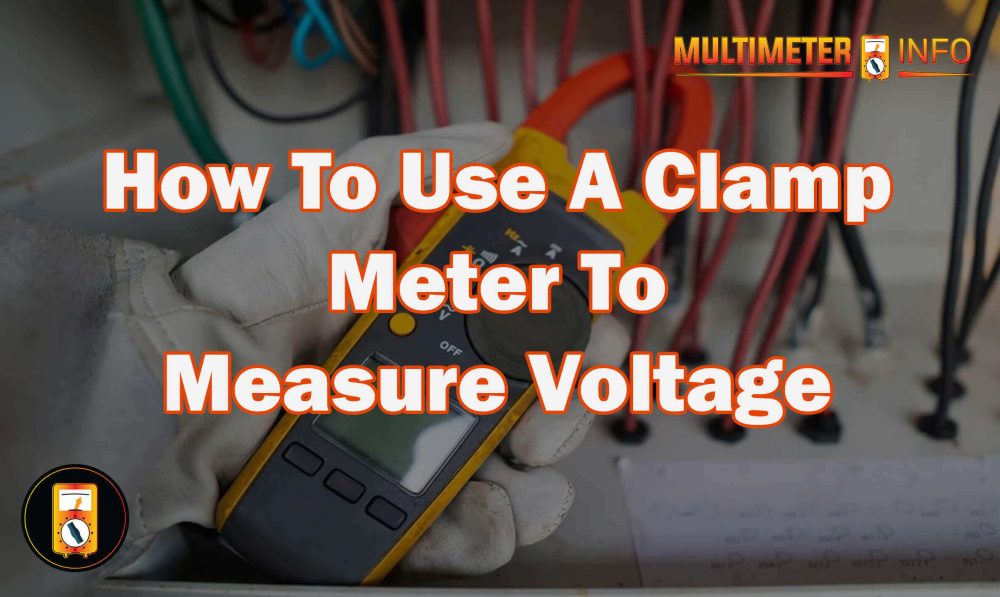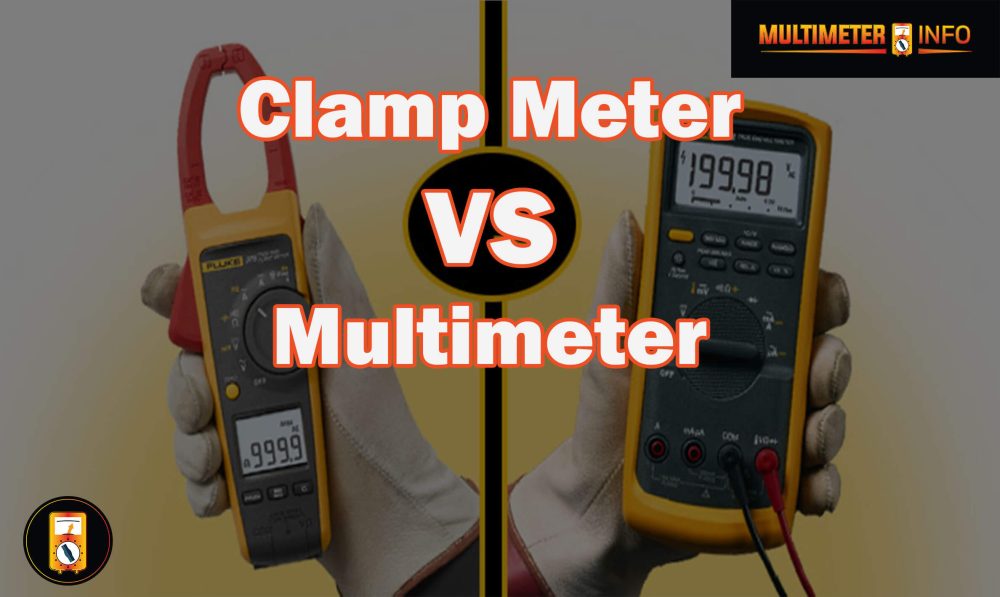Yes, you can get shocked using a multimeter if you do not follow proper safety precautions.
Some potential hazards include:
- Damaged or worn-out leads: Make sure the leads are properly insulated and not damaged. Cuts and damage to the lead’s insulation create a risk of shock.
- Incorrect settings: Never apply power to the circuit while measuring resistance with a multimeter. Also, ensure that the multimeter is switched to the correct mode (voltage or current) before taking measurements.
- Inappropriate handling: Avoid touching the probe conductor with your fingers, as this might result in a shock. Avoid holding the meter probes with both hands when measuring high-voltage circuits, as this can create a dangerous hand-to-hand shock current path.
- Poor maintenance: Shock hazards can occur if the meter and test leads are not properly maintained. Always replace internal fuses with the correct rating and type of fuse in your multimeter, as the manufacturer specifies.
- Inadequate safety equipment: Wear protective gloves, headwear, and insulated mats when working with electrical circuits greater than 50V.
- Environmental factors: If possible, avoid taking measurements in humid or damp environments and ensure no atmospheric hazards around you, such as explosive dust or vapor.
Always follow the manufacturer’s instructions and safety guidelines when using a multimeter to minimize the risk of getting shocked. Additionally, inspect the multimeter, test probes, and accessories for signs of physical damage before use. By following these safety precautions, you can reduce the risk of injury while using a multimeter.
What Are Some Signs Of Damaged Or Worn-Out Leads On A Multimeter?
Here are some signs of damaged or worn-out leads on a multimeter:
- Inaccurate readings: Poorly made, worn, or under-rated test leads can cause inaccurate readings.
- Needle movement: If the needle moves towards zero ohms, but you can’t get a reading, it may indicate a problem with the leads.
- Visual inspection: A visual inspection of the leads can reveal obvious faults that can lead to injury.
- Physical condition: The physical condition of the test leads is the most important factor affecting your measurements.
- Resistance: Set your multimeter to read resistance and touch the test probe leads together.
It should read zero ohms. If you have resistance ratings of over zero ohms, it may indicate a problem with the leads. - Connection: If you experience a problem with the multimeter test leads may be due to a bad connection or faulty leads.
Can You Explain Why It Is Important Not To Apply Power To A Circuit While Measuring Resistance With A Multimeter?
It is essential not to apply power to a circuit while measuring resistance with a multimeter because a multimeter measures resistance by putting a small current across the probes and measuring the resulting voltage.
The resistance reading is meaningless if there is already voltage on your measuring object.
Additionally, situations, where voltage is being applied can be hazardous, so separation is critical.
Here are some reasons why you should turn off the power before measuring resistance with a multimeter:
- Safety: Applying power to a circuit while measuring resistance can be hazardous, so turning off the power before measuring resistance is essential.
- Accuracy: The resistance reading is meaningless if there is already voltage on the thing you’re measuring, so it is essential to turn off the power to the circuit before measuring resistance to get an accurate reading.
- Functionality: Measuring resistance with a multimeter requires the meter to put a small current across the probes and measure the resulting voltage.
The resistance reading is meaningless if there is already voltage on your measuring object.
Are There Any Specific Precautions To Take When Measuring High-Voltage Circuits With A Multimeter?
When measuring high-voltage circuits with a multimeter, it is important to take certain precautions to ensure safety.
Here are some tips:
- Visually inspect the multimeter before taking a measurement. Check the meter, test probes, and accessories for signs of physical damage. Ensure all plugs fit securely, and watch for exposed metal or any cracks in the casing.
- Do not overload the multimeter. When in doubt, use a high range. You need to handle, use, and store meters properly.
- Check the multimeter on a known voltage source before working with high-current circuits. This step allows you to confirm that the unit is working as intended. Getting false readings from a known source is a good indicator that something is wrong. Don’t utilize a faulty model on an unknown source, especially if high voltages are in question.
- Keep the multimeter in its protective case along with the test probes when not in use.
- Inspect the probes before using them on an unknown source. If one of the two probes (or both) is faulty, there is a high risk of injury, especially under high voltages.
- When working on live power circuits, use a multimeter rated for the appropriate measurement category. Anyone working on live power circuits should be protected with flame-resistant clothing.
- Never apply power to the circuit when measuring resistance with a multimeter. Be sure to read AC measurements on the AC voltage position.
How Often Should The Internal Fuses In A Multimeter Be Replaced, And Why Is It Important To Use The Correct Rating And Type?
How often should the internal fuses in a multimeter be replaced?
- There is no set time frame for replacing the internal fuses in a multimeter.
They should be replaced when they are blown or damaged. - If the multimeter is used frequently or in harsh conditions, the fuses may need to be replaced more often.
Why is it important to use the correct rating and type of fuse in a multimeter?
- Using the correct rating and type of fuse is important for safety reasons.
- If a fuse with the wrong rating is used, it may not provide adequate protection and could damage the multimeter or injury to the user.
- It is important to use the same type of fuse that was originally installed in the multimeter.
- Some multimeters may require specific types of fuses, such as ceramic HRC fuses or self-resetting fuses.
Could You Provide More Information On The Recommended Safety Equipment For Working With Electrical Circuits Greater Than 50V?
When working with electrical circuits greater than 50V, it is important to use appropriate safety equipment to prevent accidents and injuries.
Here are some recommendations:
- Guarding: OSHA requires guarding for electrical equipment operating at 50 volts or more to prevent accidental contact.
- Qualified employees: Only qualified employees may work in areas containing unguarded, uninsulated energized lines or parts of equipment operating at 50 volts or more.
- Equipment: Only use equipment (cables, terminals, etc.) rated for your anticipated usage.
Check an amperage chart for what wire gauge is appropriate for your system. - Fuses, breakers, resistors, and Ground Fault Circuit Interrupters (GCFI): These should be used to protect against electrical hazards.
- Signage: High voltage areas, enclosures, boxes, and cabinets should be labeled with proper signage in accordance with OSHA 1910.
- Isolation: Equipment at 50 V or greater should be isolated from people and labeled with a warning sign.
- Enclosures: Equipment at 600 V or greater should be incomplete, insulated, secure, and marked enclosures. It is important to note that OSHA considers all voltages of 50 volts or above hazardous. Therefore, it is recommended to take appropriate safety measures when working with electrical circuits greater than 50V to prevent accidents and injuries.
Helpful Resources
- https://www.toolnerds.com/multimeter-safety-tips/
- https://www.worksafe.qld.gov.au/news-and-events/newsletters/esafe-newsletters/esafe-editions/esafe-electrical/2022-newsletters/june-2022/multimeter-incidents
- https://electriciantraining.tpub.com/14175/css/Multimeter-Safety-Precautions-58.htm
- https://www.allaboutcircuits.com/textbook/direct-current/chpt-3/safe-meter-usage/
- https://medium.com/@multimeterpro/how-to-use-multimeter-safely-3fe4bd418ce9
- https://leafelectricalsafety.com/blog/digital-multimeter-danger
- https://www.fluke.com/en-us/learn/blog/safety/multimeter-guide
- https://ecampusontario.pressbooks.pub/multimeters101/chapter/1-1-use-and-storage-of-multimeters/
- https://bestmultimeterreviews.org/multimeter-safety-precautions/





